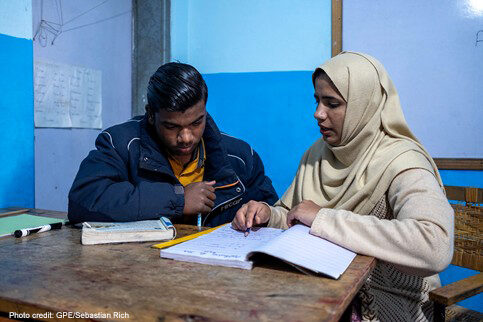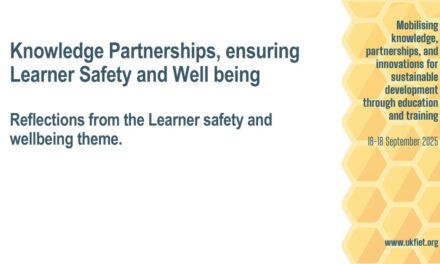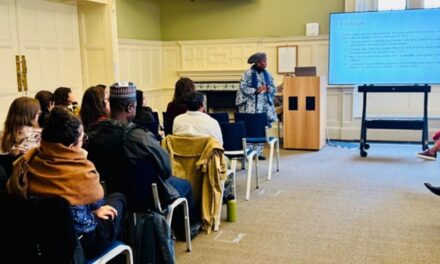This blog was written by Fouzia Sadaf, University of the Punjab. For the 2025 UKFIET conference, a record 37 individuals from 15 countries, including Fouzia, were provided with bursaries to assist them to participate and present at the conference. The researchers were asked to write a short piece about their research or experience of attending the conference.
At the UKFIET 2025 Conference, I had the privilege of sharing my research on the leadership journeys of 30 female professors in public universities in Pakistan. My study, “Navigating Intersectionality: Female Academics’ Leadership Trajectories in Pakistani Universities,” sought to move beyond simplistic narratives of women’s marginalisation by highlighting both barriers and enabling conditions that shape women’s academic leadership.
Challenging homogeneous narratives
Global debates often emphasise the systemic barriers that restrict women’s advancement to leadership in higher education. While these challenges are very real, my findings show that women’s stories are more complex. Many participants benefitted from socio-cultural capital—such as parents’ education, urban upbringing, and professional networks—that opened doors to success. Others, despite disadvantaged backgrounds, relied on strong familial encouragement that acted as a substitute for missing social and cultural capital.
These experiences illustrate that intersectional identities are not only about compounded disadvantage. They can also be sources of strength, resilience and agency, helping women to navigate and sometimes transform gendered structures within academia.
Why Pakistan matters
Pakistan ranks last globally for women’s representation in leadership according to ILO surveys. Within higher education, only 0.04% of vice-chancellors are women, usually in women-only universities. Against this backdrop, the stories of female professors who have reached the top levels of academia are powerful and necessary. Their trajectories shed light on both structural barriers and the enabling elements that deserve attention in policy and practice.
Towards equity and inclusion
My research highlights the critical role of supportive institutional cultures, collegial networks and strong leadership role models in fostering women’s success. Conversely, discriminatory practices and narrow organisational norms continue to restrict mobility. Addressing these inequities requires both structural reform and cultural change, particularly encouraging families to invest in their daughters’ careers and reducing unpaid domestic burdens.
Policy pathways
Based on these findings, I recommend that universities:
- Develop formal mentorship programmes to provide guidance, role models, and networks for women
- Institutionalise policies that support women from disadvantaged backgrounds, including financial support and flexible arrangements
- Recognise and expand enabling structures, such as supportive leadership and inclusive governance, so that they become systemic rather than incidental.
Looking forward
By bringing women’s voices and experiences to the forefront, this research contributes not only to scholarship on intersectionality but also to practical strategies for equity and inclusion in higher education. For many participants from more affluent and educated family backgrounds, parental support and academic exposure were often seen as the norm, providing them with critical socio-cultural and intellectual capital to pursue their careers. I hope these insights will encourage policymakers, institutions and families alike to invest in women’s leadership potential, ensuring that their contributions shape the future of academia in Pakistan and beyond.
This conference offered me a meaningful opportunity to share my work and engage with colleagues from around the world. The thoughtful questions and feedback I received reinforced the importance of this research and allowed me to feel part of the vibrant UKFIET community. This experience reminded me that platforms like UKFIET are crucial for amplifying underrepresented voices and ensuring that research informs both policy and practice at a global scale.





